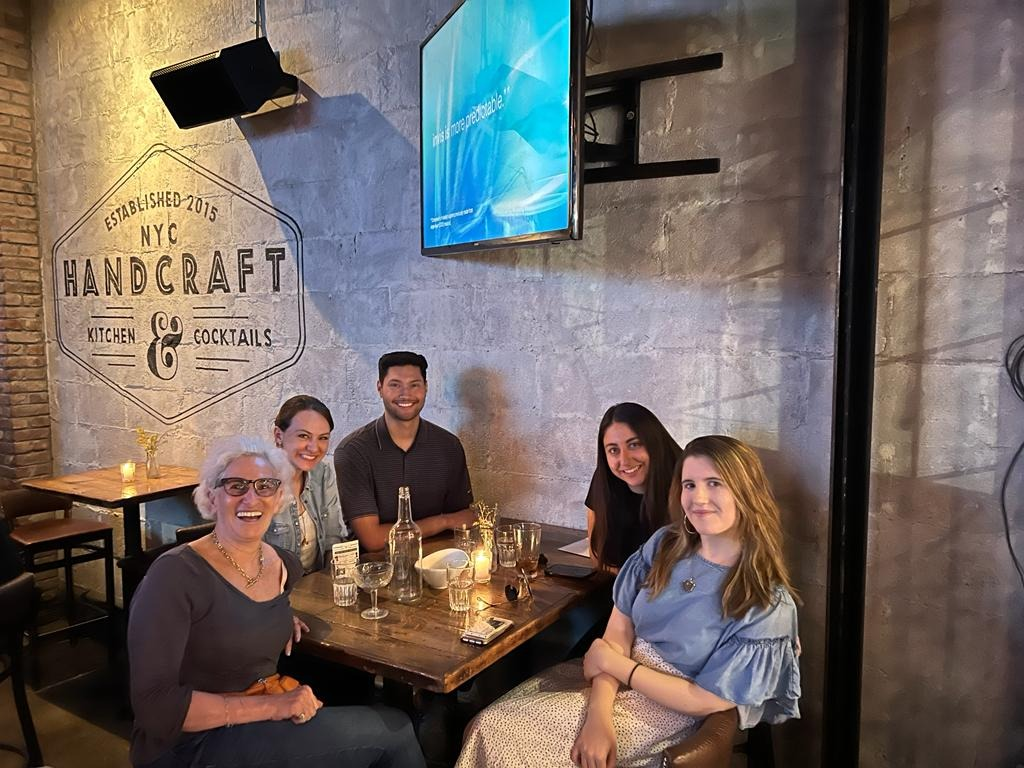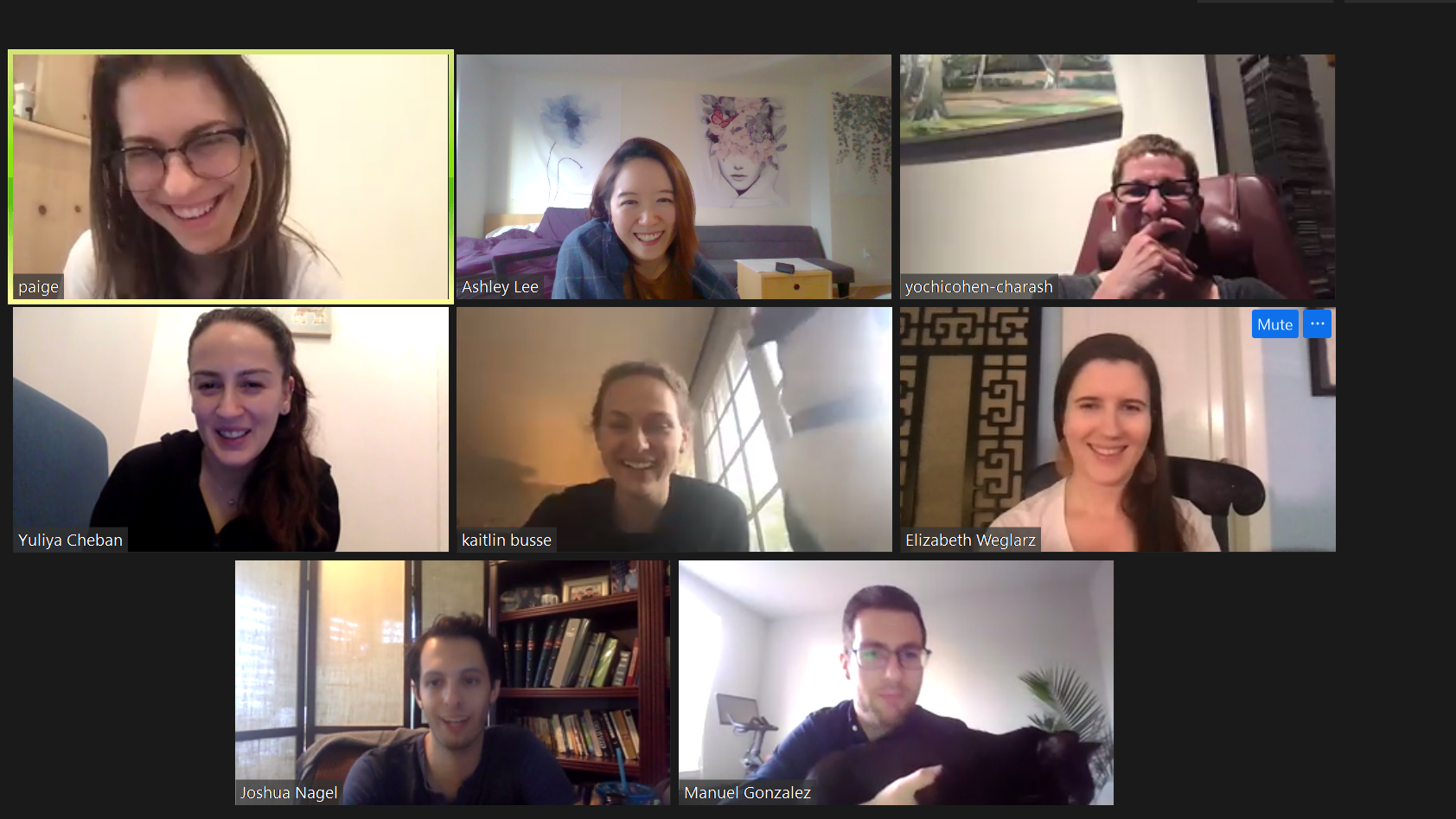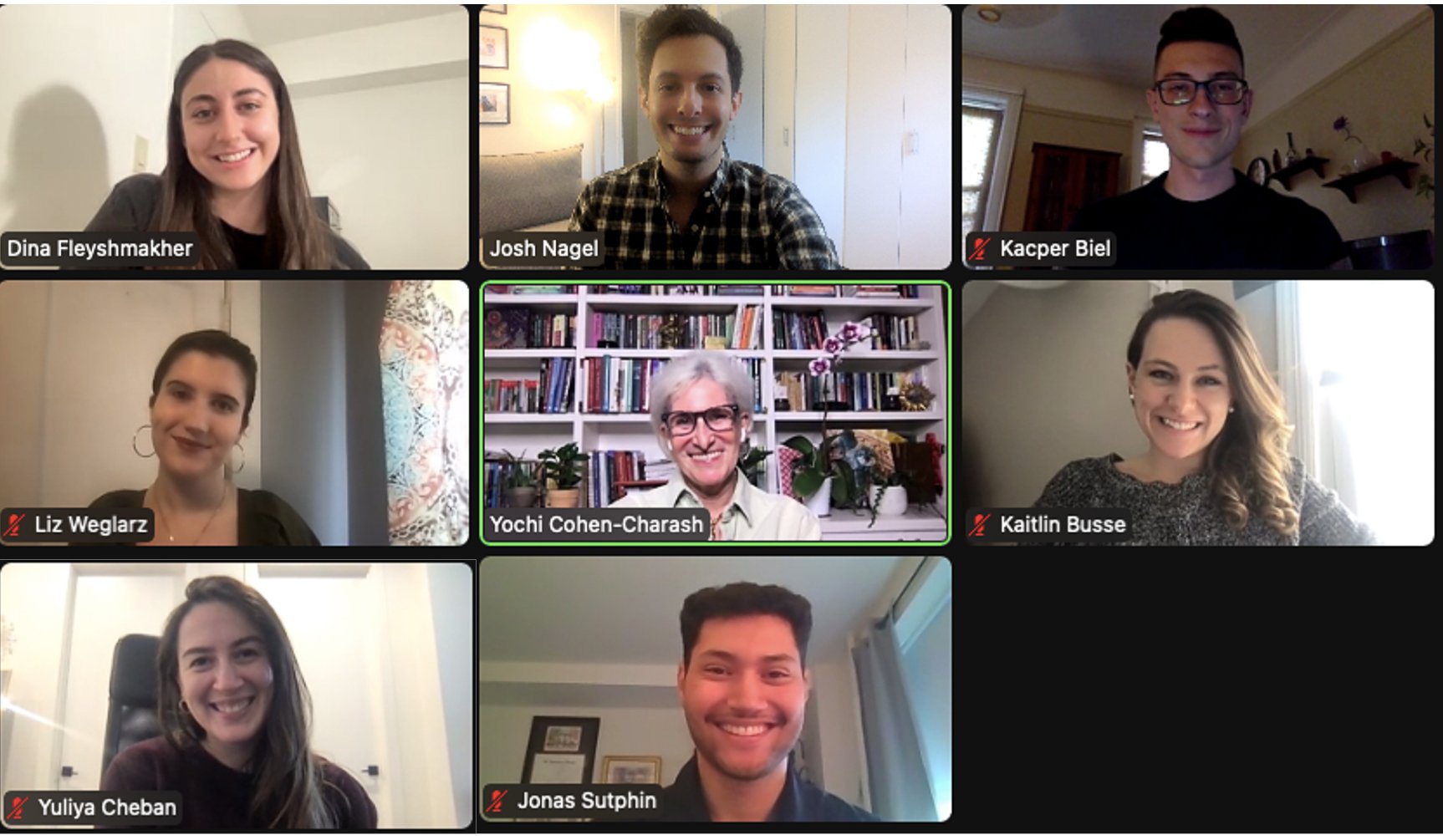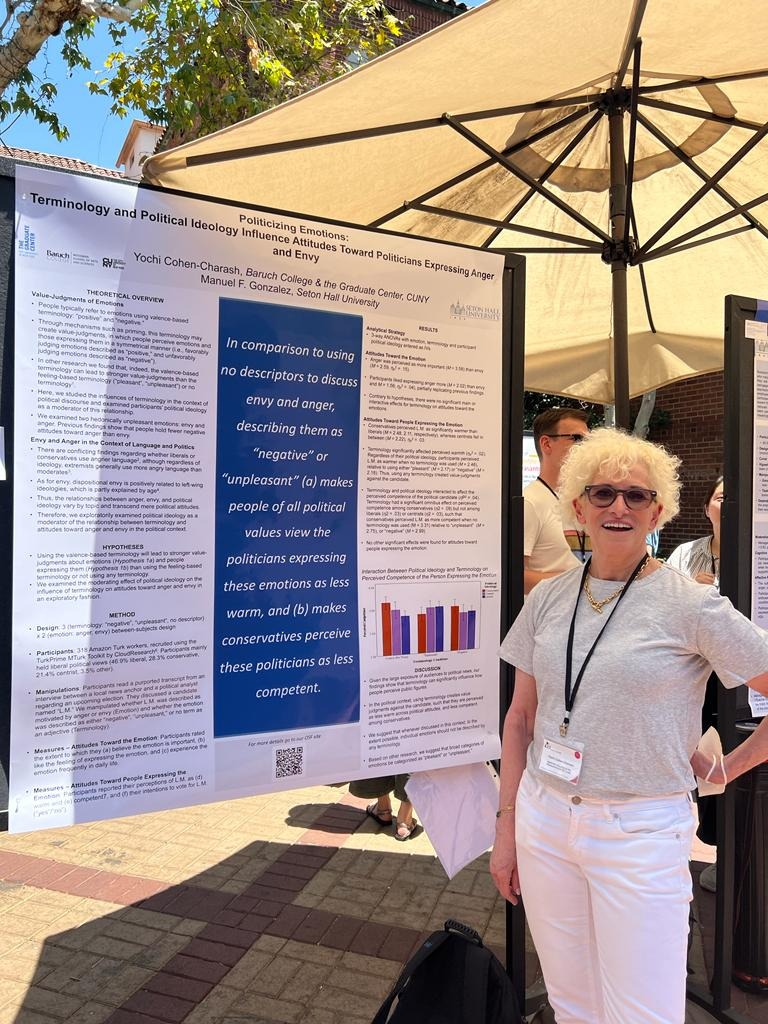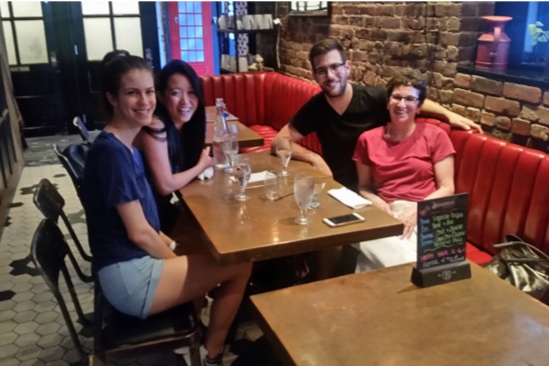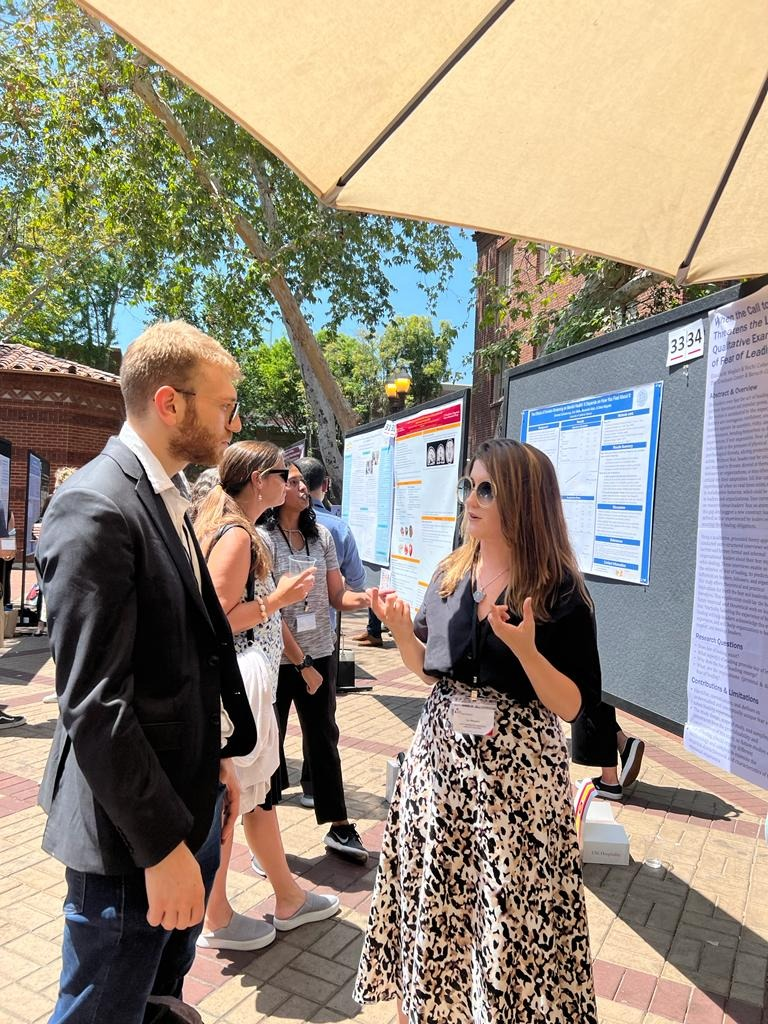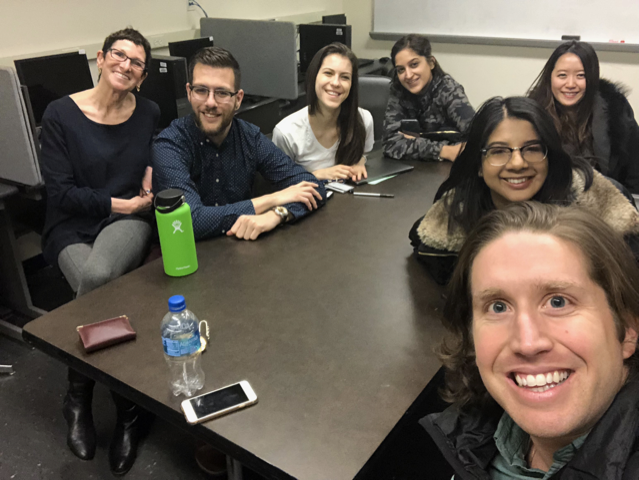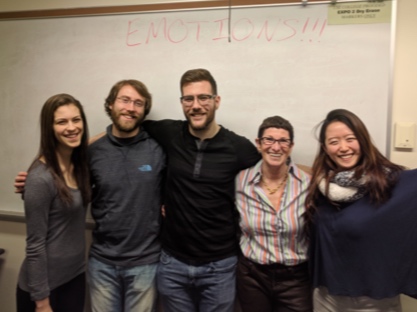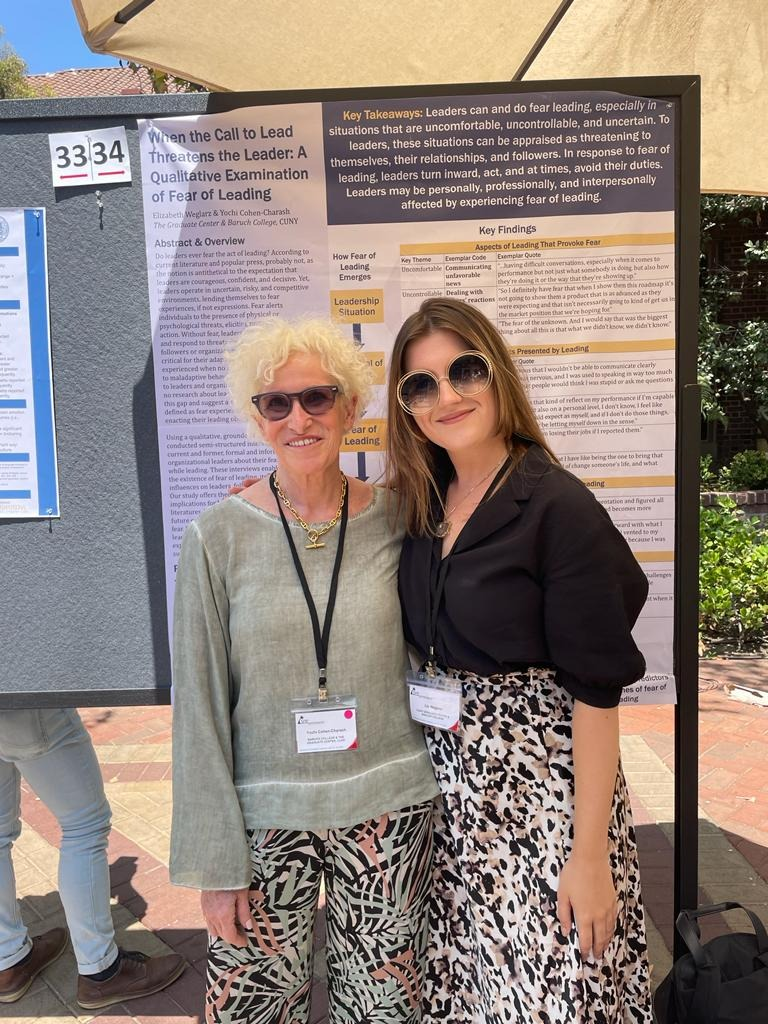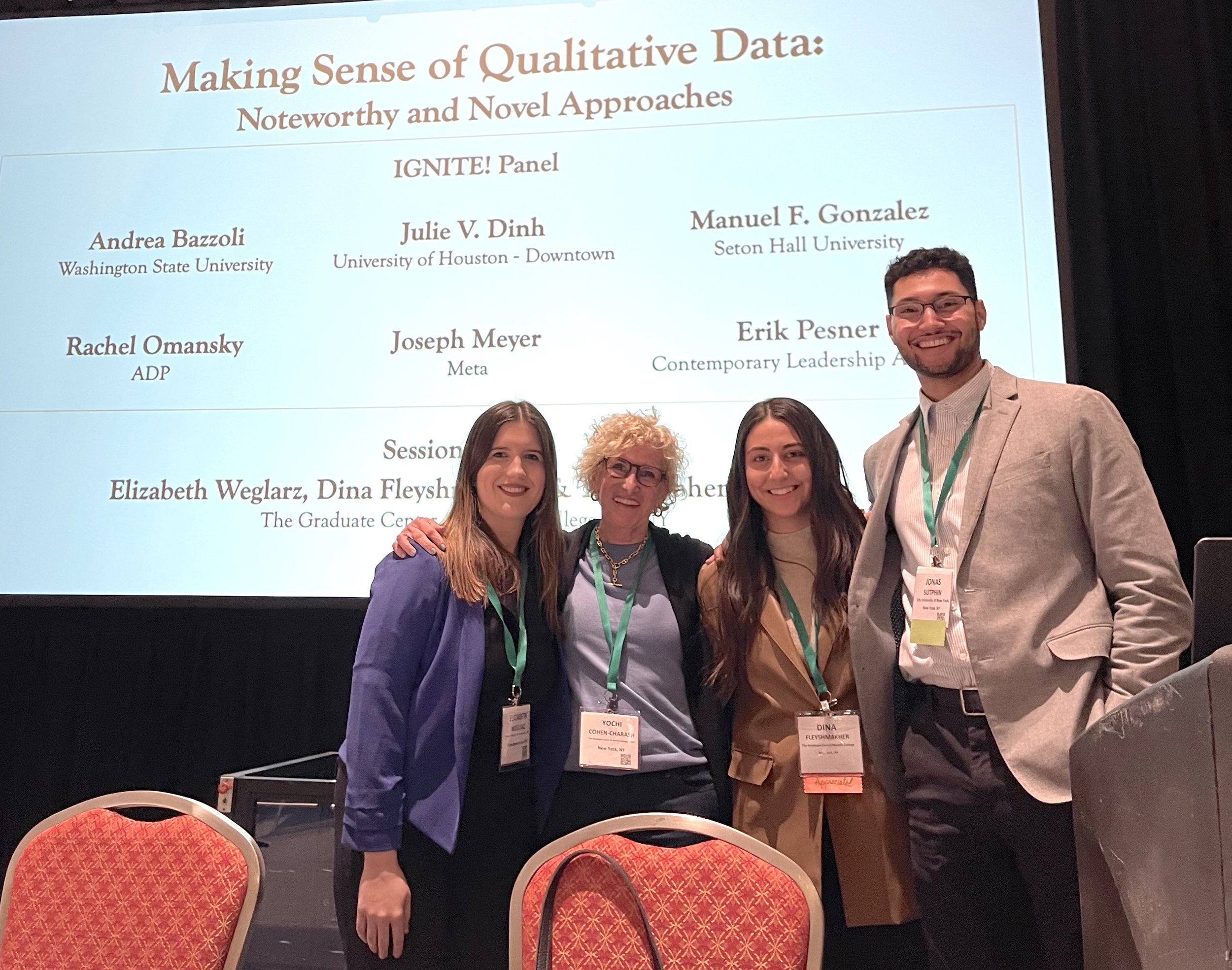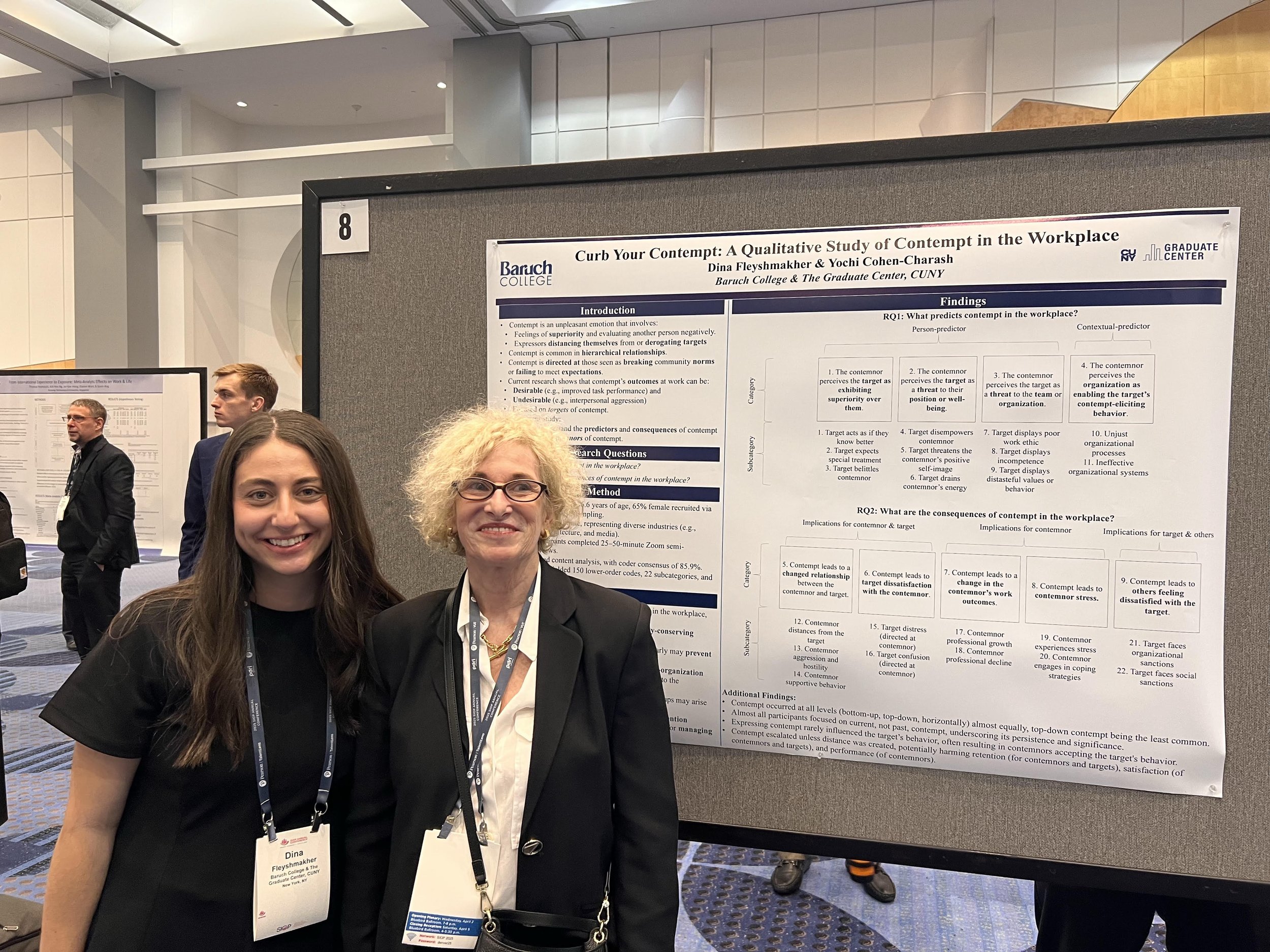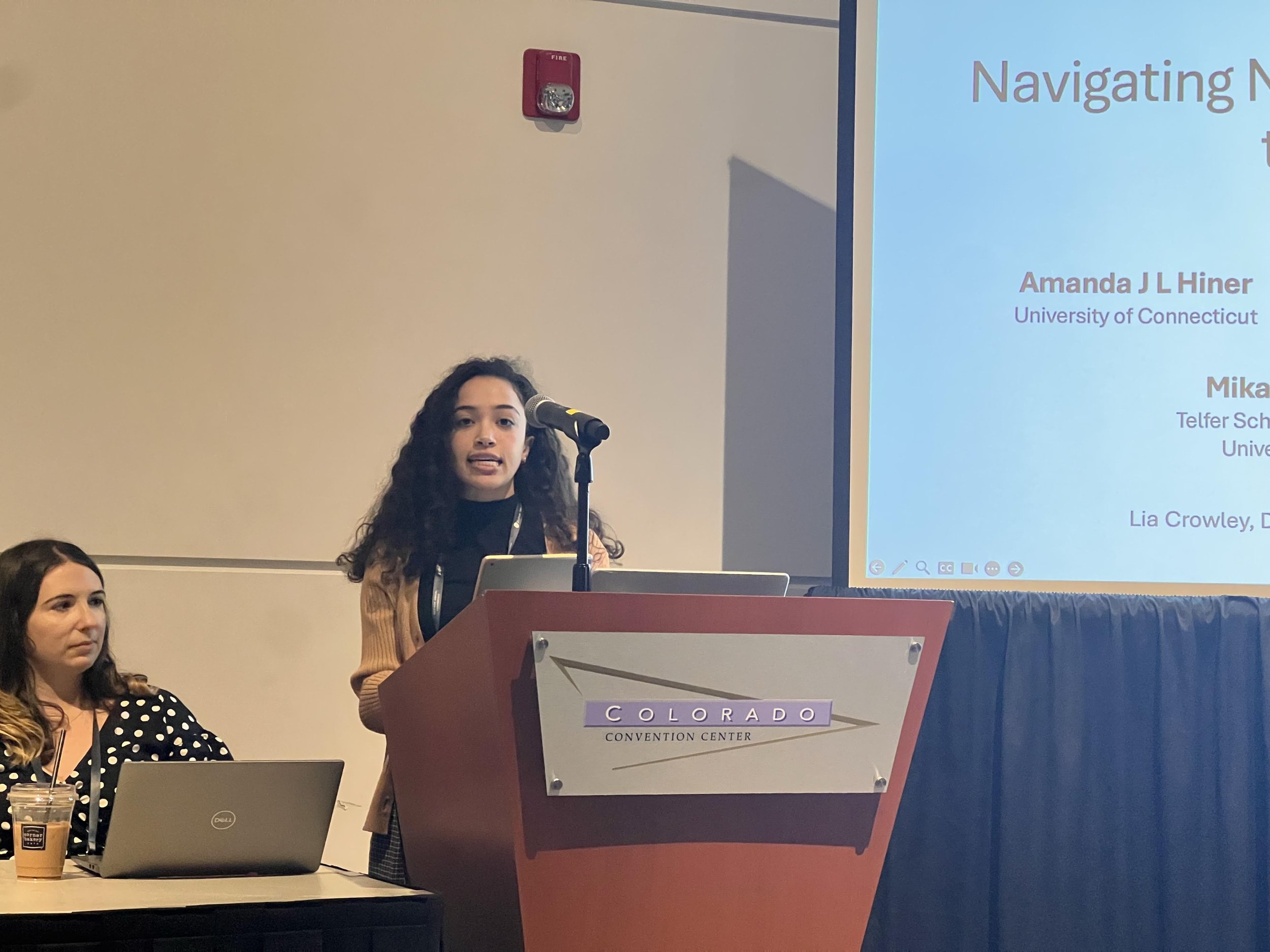Emotions in Organizations
Principal Investigator: Yochi Cohen-Charash
Lab Overview
General philosophy
At the emotions in organizations lab, we examine the role of emotions in motivating behavior in general, and in work organizations in particular. Yochi’s philosophy about emotions, which many of us share, is that there are no “positive” or “negative” emotions, but rather, that all emotions can be adaptive under some circumstances and maladaptive under other circumstances. This assumption leads us to examine emotions and reactions to them in a holistic way that does not succumb to value judgments of emotions as good or bad. We examine our research questions using a wide variety of research methods, such as laboratory experiments, correlational studies, survey research, longitudinal studies, archival studies, and qualitative studies.
Sample projects
One of the emotions we focus on is envy – the emotion experienced when a person wants to have something someone else has. We have repeatedly shown that envy can result in self-promoting, other-demoting, and additional reactions that do not belong to these two categories (e.g., cognitive reappraisal, withdrawal). We now examine various personal and situational variables that influence the type of reactions to envy people can have. Other lines of research concerning envy examine its relationship with justice, interventions that might help people cope with envy, and identifying the antecedents of envy.
We are also interested in jealousy and examine its occurrence in non-relationship contexts. Jealousy occurs whenever a person’s advantageous position is under threat of being taken away by someone or something else. This is a novel way of looking at jealousy and expands the range of situations in which jealousy operates and motivates behavior. It also highlights the differences between envy and jealousy and shows that both have significant implications at work.
We also examine stress, fear of leadership, fear of success, contempt, and firgun (being happy for someone else’s good fortune) as motivating behavior in and out of work. Recently, we have begun examining (and finding) the influence of the language we use to discuss emotions on how we feel about emotions and the people experiencing them.
In addition to our research on emotions, we study issues of fairness in organizations, especially the relationship between fairness and emotions.
In general, we are open to studying various emotions and emotion-related phenomena beyond those mentioned above.
Research Assistantship
The success of our research is dependent on the research assistants who work with us. We have research assistants at the undergraduate and graduate levels, from Baruch College and from other schools. Of our past research assistants, nearly 34% have gone on to pursue doctoral degrees in psychology or related fields at universities such as the University of Akron, Bowling Green, Hofstra, and the CUNY Graduate Center. Approximately 38% of our past research assistants have continued to MA/M.sc studies in universities like Columbia, NYU, and the CUNY system; 17% of our students pursued applied jobs, and the rest are still completing their BA. Our lab meets regularly to discuss lab projects as well as general research principles and trends and the applications of our research in the workplace. We also hold bi-semester labby hours (lab happy hours).
Interested in working with us?
To find out whether we have openings for research assistants, please email our lab manager, Sage Aronson at saronson@gradcenter.cuny.edu
2021-2022 accepted publications and presentations
Lab Members
Faculty Member: Yochi Cohen-Charash, Ph.D.
Lab manager: Dina Fleyshmakher
Ph.D. students: Kaitlin Busse, Yuliya Cheban, Dina Fleyshmakher, Joshua Nagel, Jonas Sutphin, Elizabeth Weglarz
MS students: Diksha Mangtani
Undergraduate students: Kacper Biel
Research Projects Currently Underway
Self-promoting and other-demoting reactions to envy– various projects with Elliott Larson, Manny Gonzalez, and Soohyun (Ashley) Lee.
Being happy for the other’s good fortune (firgun)– with Elliott Larson, Charles Scherbaum, Miriam Erez (the Techinion, Israel), Alessa Natale, and Dina Fleyshmakher.
Jealousy at work– with Elliott Larson and Gerben van Kleef (University of Amsterdam).
Envy regulation through emotion attributions to self and others – with Elliott Larson and Agneta Fischer (University of Amsterdam)
Envy and (in)justice– with Manny Gonzalez and Joshua Nagel.
Envy meta-analysis – with Manny Gonzalez and Soohyun (Ashley) Lee, Kim Johnson (University of Southern Florida), and Paul Spector (University of Southern Florida)
Boosting self-efficacy as a mechanism to manage reactions to envy – with Manny Gonzalez and Soohyun (Ashley) Lee, and Diksha Mangtani
A theory of reactions to envy – with Manny Gonzalez, Soohyun (Ashley) Lee, Paige Alenick, and Elliott Larson.
The influence of stress on just behaviors and decision making –with Paige Alenick.
The influences of terminology on how people perceive everyday emotions – with Manny Gonzalez.
Over-disclosure in the selection context: the case of engagement rings – with Yuliya Cheban, Kaitlin Busse, and Jonas Sutphin
Fear of success: Bradley Gray
Fear of leading: Elizabeth Weglarz
Contempt at work: Dina Fleyshmakher

